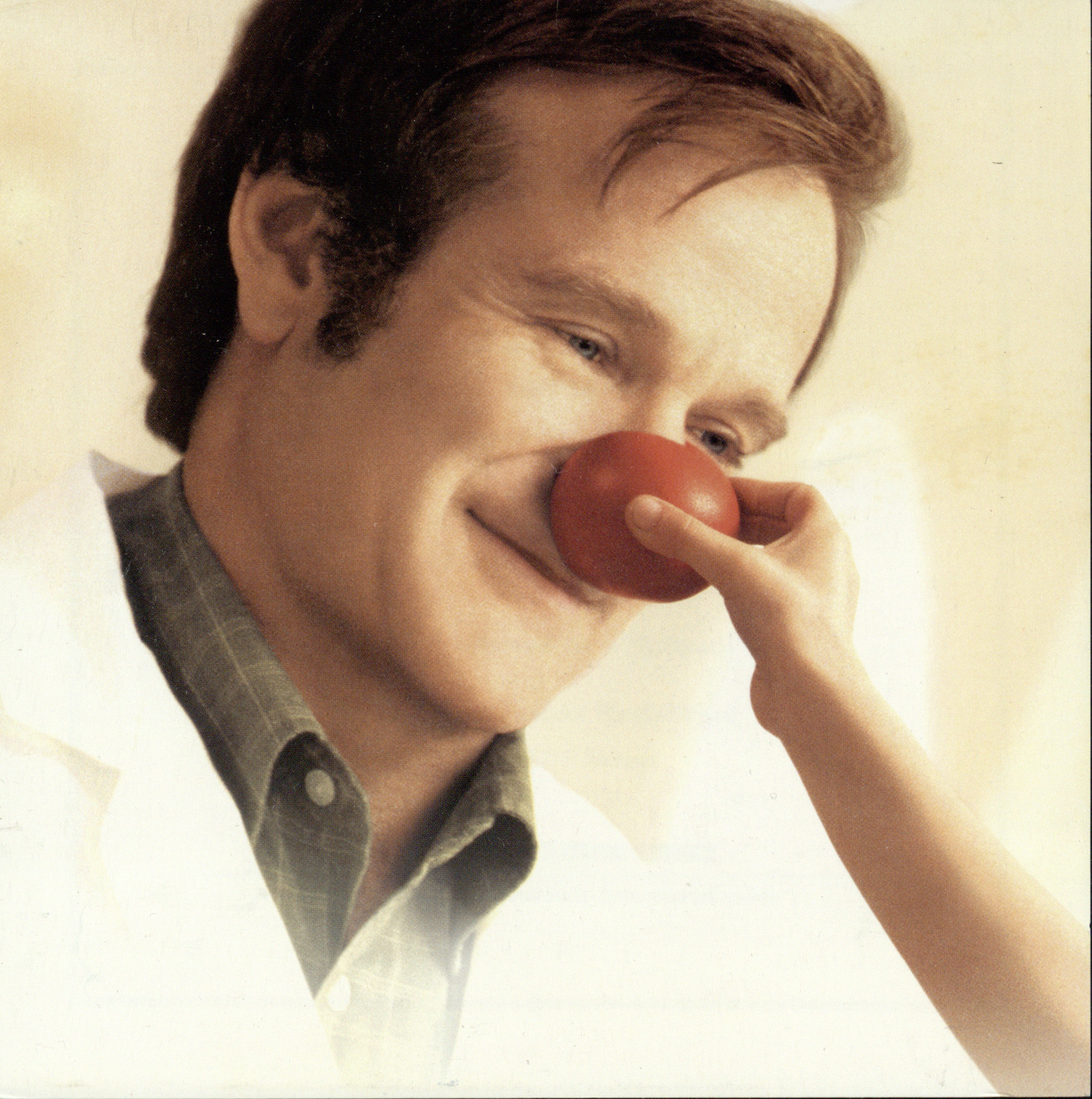Robin Williams died yesterday of apparent suicide, at the age of 63.
The first thought that went through my mind when I saw the news: "We really needed him." Laughter is a joy and a gift from God and a bulwark against darkness. Williams offered so much of that.
The second thought was, "I had no idea". Perhaps at some point I'd fleetingly read that Williams was in rehab from drugs and alcohol, but I hadn't known that his addictions were an attempt to fight off depression and anxiety.
Now I don't claim to be the world's greatest people-reader, and 99% of what I saw of Williams was, of course, a performance of some kind. But I have trouble hearing the manic, happy-at-all-the-wrong-times boom of the Genie in "Aladdin" and connecting it to a depressed soul. The man's calling was to cheer people up. He was so gifted at it. It was hard to guess what was under the surface the whole time, that the great well of humor and compassion from which he enriched others belied a different internal reality.
It's a reminder to me that we must never assume.
Ian McLaren said, "Be kind, for everyone you meet is fighting a hard battle." (No, the quote wasn't from Plato.) It's taken me very few years as a teacher and youth leader to learn a simple truth: appearances mean nothing. A smile can hide immense pain. Good grades, intelligence, and potential can come from a destructive home. That person sitting alone may not, in fact, want to be alone at all. Maybe s/he never learned how to ask for companionship, or how to keep it.
Society is, at some level, a gallery of facades. Not that Williams was a facade. He seemed pretty honest. But you can rarely tell people's need just by looking at them.
But there is hope. Oh, so much hope. These struggles are the very things Jesus went after in his ministry. Isaiah 61:1 says he came to "bind up the brokenhearted". He forgave sins, healed the blind, touched lepers with his hands, lodged with the ostracized Zaccheus. He reached people whom others either didn't see or didn't believe they could help. He was so compassionate, so earthy, so giving in an intimate way.
I love this Jesus. Instead of using great and wondrous signs in the heavens and on the earth to confirm who he was (which he certainly could have), he identified himself by loving on people. He walked right into their brokenness and healed it. And then, he died and rose again to provide our greatest need - eternal life with him. Restored bodies and minds.
And the servant is not greater than his master. Everything Christ did, he commanded his followers to do. Just as we are God's hands and feet to the nations unreached by the gospel, I believe we are a crucial instrument of God in keeping each other afloat. The New Testament is chockablock with hints that he chooses to work largely through us, his church. (Don't be intimidated by the burden. In Christ, we are more than able.)
And we must never assume that people are hunky dory. Some of those who are most in need are the ones least able to address their need. Loving on people can be unrewarding. We fear that we'll get pulled in. But if we're going to be serious about this "loving people" business, we must allow for the fact that people are weird. (You are, too.) The key, of course, is remembering that we're not in it for reward. That's the point of love. It gives without thought of reward. The great thing about love is that you needn't wait to feel it. You just do it! Sometimes it's as simple as sitting next to someone in church.
I learn two great things from the life of Robin Williams. One, to be a giver. In the scramble to spread and defend our faith, let's never forget to be a source of joy. Two, we must never assume. Instead, we must pursue. Get to know people, build relationships with them, become part of their life.
Because wherever we go, we bring Jesus with us. When we go into people, we bring Jesus to them. That is seriously good news.
P.S. Robin Williams' two best movies were "Patch Adams" and the criminally underseen "Awakenings", both quieter movies about hope and about treating people with dignity and compassion. Those of you who only know Williams' "Mrs. Doubtfire" persona, take note.

No comments:
Post a Comment